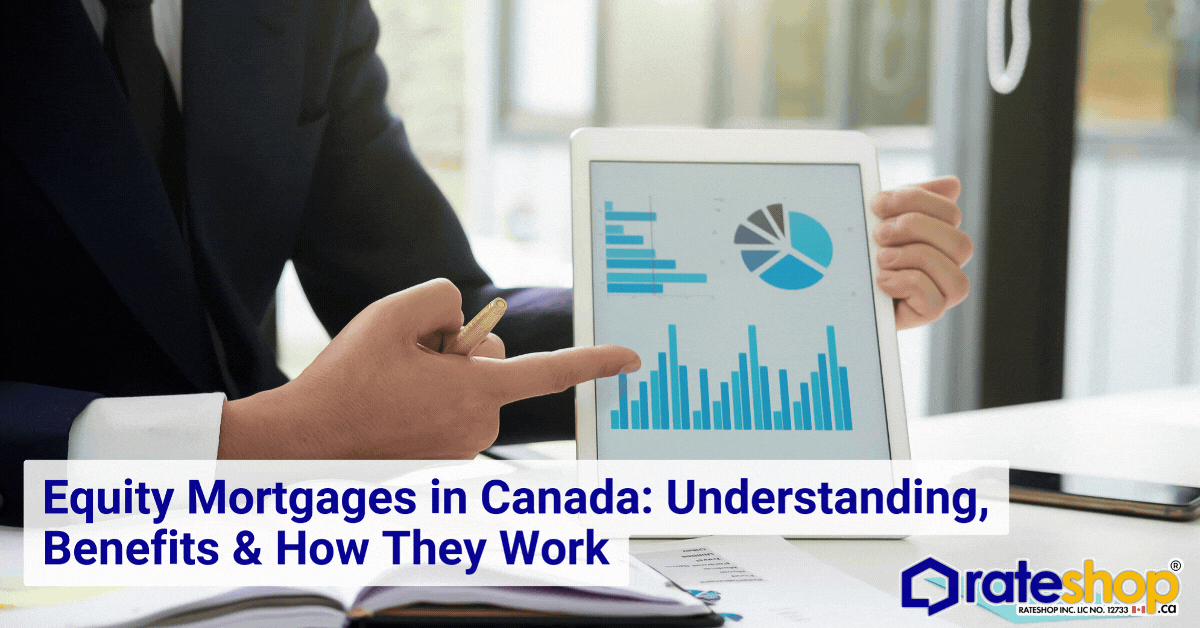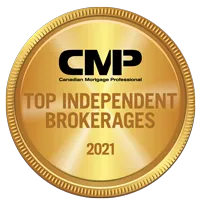Equity Mortgages
Unlock Wealth: Tap into your home equity for financial flexibility.
Easy Qualification: Approval based on equity value rather than credit history or income.
Strong Lender Network: Access to MICs, Investors and Equity Lenders offers flexible funding
Versatile Use: Use to fund investments, consolidate debts, or cover unexpected expenses within days

Discover the best mortgage rates and lowest mortgage rates in Canada at RateShop. Compare Canada mortgage lending rates from top lenders to secure your ideal home loan deal today.

Equity Mortgages 101: Unlocking Your Home’s Hidden Value
An equity mortgage is a loan secured against the equity you’ve built in your home. Home equity is calculated as the difference between your home’s market value and the outstanding balance on your mortgage. Homeowners can access these funds through a home equity loan or a homeowner line of credit (HELOC).
Key Benefits:
Access to low mortgage rates compared to unsecured loans.
Funds can be used for home improvements, investments, or emergencies.
Potential tax benefits when using funds for investment purposes.
Why an Equity Mortgage Could Be Your Smartest Financial Move
Home equity financing offers financial flexibility and can be a smart choice when used strategically:
Debt Consolidation: Pay off high-interest loans by refinancing your mortgage.
Home Renovations: Increase property value with upgrades.
Investment Opportunities: Leverage home equity to invest in real estate or business ventures.
Education Expenses: Fund post-secondary education at lower interest rates than personal loans.
Can You Qualify? The Insider’s Guide to Equity Mortgage Approval
Loan-to-Value (LTV) Ratio:
Typically, lenders allow borrowing up to 80% of home equity.
Credit Score:
A higher credit score helps secure best mortgage rates in Canada.
Stable Income:
Proof of income ensures the ability to repay the loan.
Property Location:
Homes in high-demand areas often qualify for best mortgage deals in Canada.
5 Year - Fixed Term from
3.89%
Apply for your Best Rate in minutes.
Everyone's rate is unique.What's yours?
It is our job to get your lowest possible rate. Your rate qualification depends on certain factors, such as credit score and home equity as per regulations.
*Advertised rates may not be offered by this lender. Mortgage lender offers are aggregated by RateShop & its Brokerage Network subject to change without notice. Speak with our mortgage broker about APR and qualification requirements.

Equity Mortgage Rates in Canada: What You Need to Know
Interest rates vary based on lender policies and borrower risk profiles. Factors influencing Canada mortgage lending rates include:
Current Market Trends: Rates fluctuate with the economy.
Fixed vs. Variable Rates: Fixed rates offer stability, while variable rates can be lower but fluctuate.
Lender Type: Banks, credit unions, and private mortgage brokers offer different rates.
Credit History: Higher scores secure best mortgage lenders rates.
For up-to-date rates, use a home mortgage rate calculator.
HELOC vs. Home Equity Loan: Which One Fits Your Needs?
Understanding the difference helps you choose the right option:
Home Equity Line of Credit (HELOC):
Works like a credit card, with revolving credit.
Variable interest rates.
Interest-only payments allowed initially.
Home Equity Loan:
Lump sum payment with fixed interest rates.
Predictable monthly payments.
Best for large one-time expenses.
The Risks No One Talks About (And How to Avoid Them)
While equity mortgages offer financial benefits, they come with risks:
Risk of Foreclosure: Failure to repay could result in losing your home.
Higher Interest Costs: Variable rates can increase over time.
Fees & Closing Costs: Additional expenses such as legal fees and lender fees.
Over-Borrowing: Access to large sums of money can lead to financial strain.
Beyond Banks: Where to Find the Best Equity Mortgage Lenders
Not all lenders offer the same terms. Consider:
Traditional Banks: Lower rates but stricter approval.
Credit Unions: More flexible but require membership.
Private Lenders & Mortgage Brokers: Ideal for those with bad credit or self-employed borrowers.
A broker mortgage loan can help compare best mortgage rates in Canada.
Smart Alternatives: What If an Equity Mortgage Isn’t Right for You?
If an equity mortgage doesn’t fit your financial plan, consider:
Mortgage Refinancing: Get better terms by replacing your current loan.
Personal Loans: For smaller financial needs.
Government Assistance Programs: Explore first-time homebuyer incentives.
Reverse Mortgages: For seniors needing extra income.
How RateShop Brokers Secure the Best Equity Mortgage Deals for You
At RateShop, we make navigating equity mortgages simple and stress-free. Our expert brokers partner with top lenders to secure the best rates and terms for you. Here’s how we make a difference:
Compare & Save: We shop around and negotiate with multiple lenders to find you the most competitive equity mortgage rates.
Tailored Solutions: Whether you need funds for renovations, investments, or debt consolidation, we customize mortgage options to fit your unique financial goals.
Expert Guidance: Our experienced brokers break down your options, answer your questions, and help you make confident, informed decisions about leveraging your home’s equity.
FAQs About Equity Mortgages
What is the difference between a mortgage refinance and an equity mortgage?
Refinancing replaces an existing mortgage with a new one, while an equity mortgage allows you to borrow against home equity.
How can I get preapproved for a mortgage?
Lenders evaluate your credit score, income, and debt-to-income ratio. A preapproval for a mortgage loan can help secure the best rates.
Are interest rates higher for equity mortgages?
Rates depend on lender type and borrower risk profile. Compare lenders for the lowest Canadian mortgage rate.
What’s the best mortgage rate in Ontario?
Rates vary. Check online for current mortgage rates in Ontario.
Can I use an equity mortgage to refinance my home?
Yes, homeowners often use equity mortgages for refinancing.
As Seen And heard on
As Seen And heard on





Quick Links
Contact Information
6 Indell Lane, Brampton ON L6T 3Y3, Canada
Local: 416-827-2626
Toll: 800-725-9946
RateShop Inc. is a Mortgage Brokerage offering lowest mortgage rates to Canadians. We are provincially licensed in the following provinces: Mortgage Brokerage Ontario FSRA #12733, British Columbia BCFSA #MB600776, Alberta RECA #00523056P, Saskatchewan FCAA #00511126, PEI #160622, New Brunswick FCNB #88426, Newfoundland/Labrador.
Copyright 2026. RateShop Canada. All Rights Reserved.

